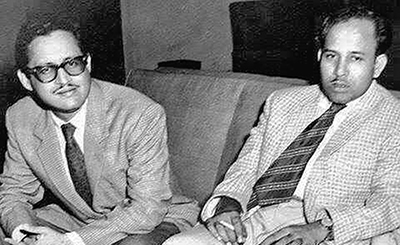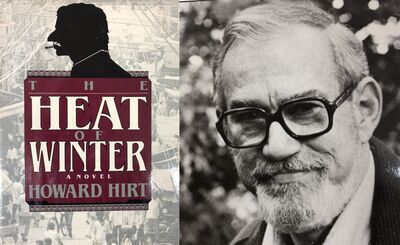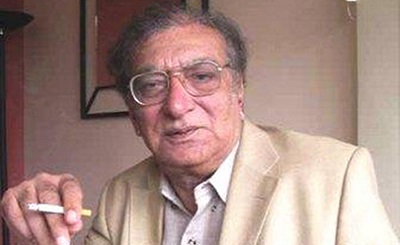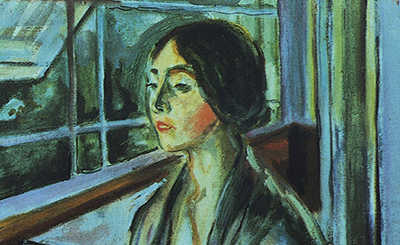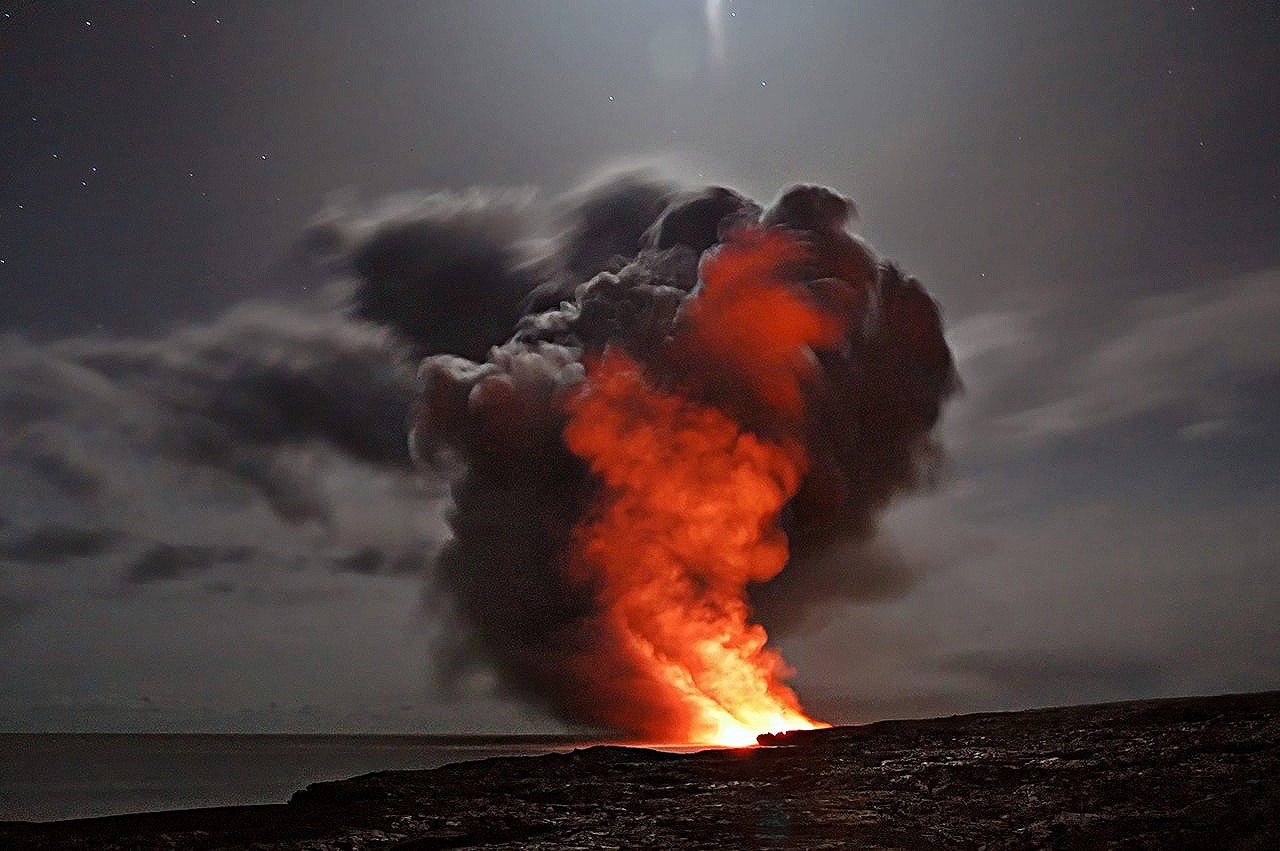
Lovers in a War
The sky turns crimson for all the foreheads
that held an apocalypse
for too long.
The ground that I stand on is shaped like a million
little ballads embracing each other.
I grew out of their womb, into a thousand breaths,
My mouth opening into a cluster of
abandoned roofs.
Words coil under my tongue, like a scared child
hiding behind his mother.
Your ballads turned into an elegy and I set my poems
on fire.
Do you see the irony?
The savior prays, while the saved
believes.
It rains, and I wear my raincoat like a bullet, or the
trigger itself.
Dripping in words that bite every inch of
the flesh my heart resides in.
Running over the places I couldn’t write
an apology.
You ask me who I am,
And I say that when falling in love, some of us
became poets, while some of us
became poems.
I look towards the ground.
Your name looks like the tiny crystals of diamond
spilt onto the floor.
I arrange them like a garland on the tip
of my tongue, and scream.
Into the void.
And the sky turns crimson.
Because love or war,
We always cry in blood.
And lovers in a war, they always cry.
Whether you can hear them or not.
Fear Is A Mother
Listen to your fears, she says.
Bloodshed on a skin,
draught in a heart.
A lone woman walks in silence.
The mother.
Inside your mind, this silence
is a war cry.
Speed, a cry for help.
Your fingers running through
entangled hair / plucking leaves
In the middle of the night.
Another day.
Another ruin.
The shards of glass at your
throat, shiver as you sing
Eyes sparkle,
like the glaze on shrapnel.
Listen to your fears.
What do you hear?
Abandonment is a neglected child,
love is his dying mother.
Kneeling before the spirits
of your past,
Crying under the graves of tomorrow.
A skeleton screeches inside,
and you know you’re alive.
A flick of hair brushing past
your eyelids.
The soles of your feet
scratch an itch,
caressing a dying memory.
Listen to your fears, they say.
Play pretend.
Abandon a child.
Love a war.
And a lone woman will
walk in silence, with
a knife at her throat.
Listen to your fears, they say.
For fear is a mother
silenced in the war.
Love, Rage and Time
Time is an emotional catastrophe
for an anxious mind.
So is love.
And so is existence.
I.
My love for you is like the lily you brought home
one evening. It bloomed, seconds after you turned
your back and gave up.
How many times have I been told to not undermine time?
My therapist says that my illness
is a repercussion of my father’s burning forehead.
I ponder over her voice like it’s a mirror, looking for
my father’s warm hands along the pauses.
I know, this illness didn’t jump at me from along a street corner.
It walked with me every day, until I realized that
it’d been holding my hand for a long while.
Someday, I stopped slapping it away and kissed it
With all the affection I had left.
Just like poetry.
II.
In my home, causation and alarm are both conclusions
of an emotional algorithm.
My mother weeps, only to discover that this rain
doesn’t calm fires anymore.
At night, her voice holds my wrinkled eyelids open, and
tucks all her lullabies under them, hoping to
put the fire to sleep.
But I’m my father’s blood. This gentleness doesn’t work anymore.
Somebody once said that everything has a tune
of its own, and everything is a song in itself.
But I sleep to the tune of my mother’s voice that sounds
more like a caution than a song.
Like the siren of an ambulance reminding you of the fragility
of your existence.
I know this because by the time I wake up, this poem
will not be lying on my charred lips.
It will be burnt alive by my own mother, as I
lie down on her lap reciting it to myself.
Because every poem sounds like the siren of an ambulance
to the most alive.
Time is an emotional catastrophe
for an anxious mind.
So is love. And so is existence.
But what is silence if not a measurement of time?
And what is time
if not a measurement of silence?
Picket Fence
I.
A finger traces a line along the sweaty palm,
and circles back to the lips.
A syllable falls down the neck, along the nerves that carry it down to
the entwined fingers, and shivers, as it reaches the boundary
and tries to jump over the picket fence. A poem breathes
a name that got lost, trying to find a way down the throat.
I try to write.
The only syllables that find a way out of my gut and onto
the periphery of my tongue are the ones lapping up their own wounds,
taming themselves to suit the world, outside of home.
There’s a rusty window that runs along
my bedroom wall. It creaks, every time I move the hinges away
from the lock, trying to open it. Almost like a warning.
I open it nevertheless, and get my eyes burnt from the light.
The hinges creak, and I wonder whether it’s a pleading
or a warning this time.
II.
I try to write a poem, but it gets lost on the page.
After all, words are a great camouflage. Do not attempt to scavenge
for the poem, or it will kill itself and you won’t even notice.
How many poems have died in my mind because I couldn’t stop myself?
Like an orb of smoke, the poem evades my eyes.
And the words, where do they exist? In my mind, or at my fingertips?
Or do I just decipher a code from the void around me?
A void that I call home?
Unspoken words that hang around, suspended in the air,
curved and beautified with time,
like antiques in the old, dilapidated shop across the street.
III.
My lips take the form of your name, and I become intangible.
My bones become light as a feather, and I travel across time. They
can’t reach me anymore. Do I exist here, in the present?
Do I have a form?
A giant nebulous / an answer obscure.
The world is an amorphous oyster, and you’re my home.
But how do I define this formlessness of the world to you?
How do I tell you that everything,
everything holds the ability to become me and you, and that everything,
whether it looks like it or not,
is my love letter to you?
Coming Home To Poetry
And when humanity fails,
there will be us
Squandering love over
mortal kindness / a fleeting
sense of security
Like the thin layer of sparkle
over poisoned waters we dipped
our knuckles in
Trying to die, but not quite.
And when this love fails / dies out
There will be poetry
Wrapping gift paper around
poisoned knuckles
Holding the doors wide open.
The wind lamenting the
landscapes of suffering
A lover’s embrace / A deer’s flight
And what does she say
when we get there?
“Leave your lips outside, for we
have no use of them here.
Shed blood like a leaking tap
Mischievously consistent.
Choke on your own name.
Cut open your carotid so I
know you’re not dead, yet.
Let me see if you can die
a thousand times
before being fully alive
Reading me like the frail skin
over your lover’s eyes,
when they shut.
Hold my finger, not too tight.
Let your skin burn
into mine
Tread along the burning thorns.
And oh,
welcome home.”
More from The Byword
Comments
*Comments will be moderated




